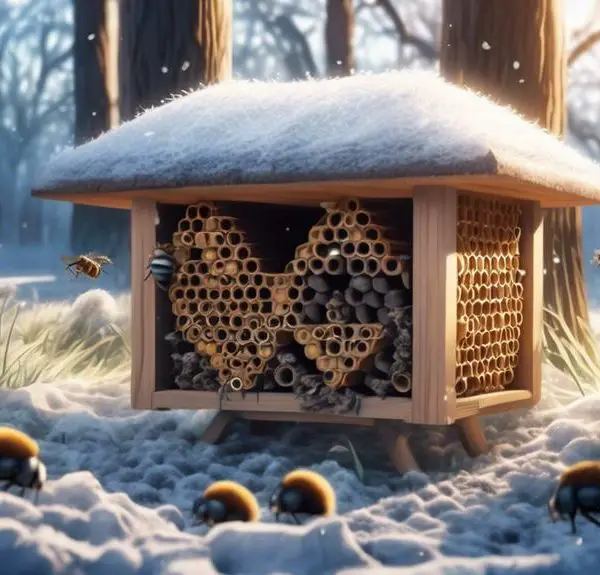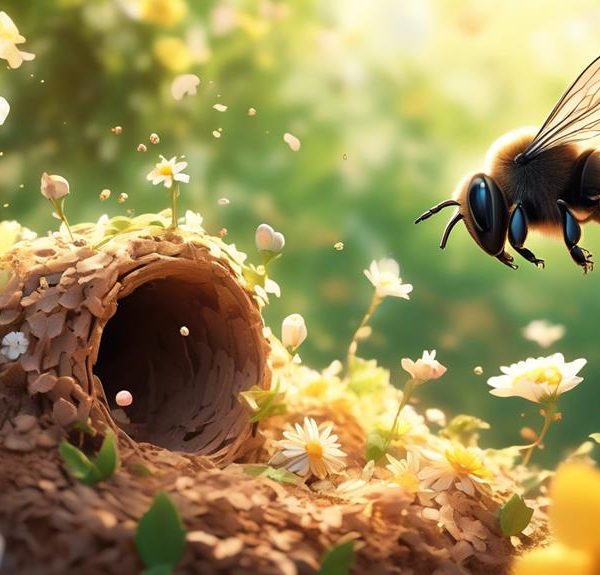Yearning to unravel the complex relationship between mason bees and wasps? Discover if these buzzing creatures can influence your backyard ecosystem.
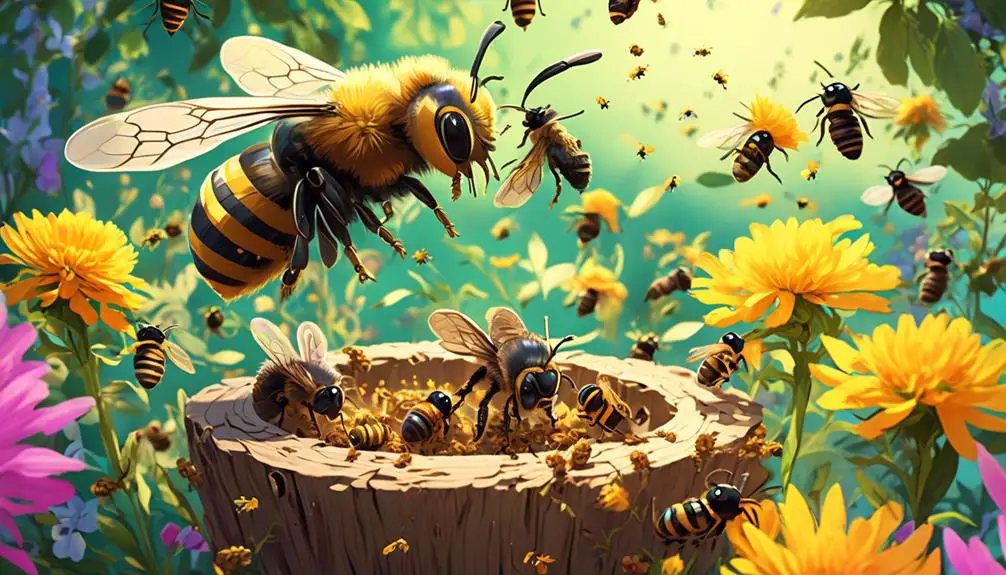
Do Mason Bees Keep Wasps Away?
You've seen bees buzzing about your garden, you've noticed wasps hanging around your patio, and you've questioned if the two are related. The relationship between different insect species can be incredibly complex, and this is certainly the case when discussing mason bees and wasps.
You may be wondering, do mason bees actually deter wasps? This leads us to an intriguing discussion where we'll explore the behavior of these insects, their interactions, and the implications on your backyard ecosystem.
Keep in mind, the answer might not be as straightforward as you think.
Key Takeaways
- Mason bees and wasps are not natural enemies.
- Mason bees' nesting habits can deter wasp intrusion.
- Mason bees' efficiency as pollinators can indirectly impact wasp populations.
- Mason bees' smaller colonies and lack of attractive food sources may reduce the chance of wasp predation.
Understanding Mason Bees Behavior
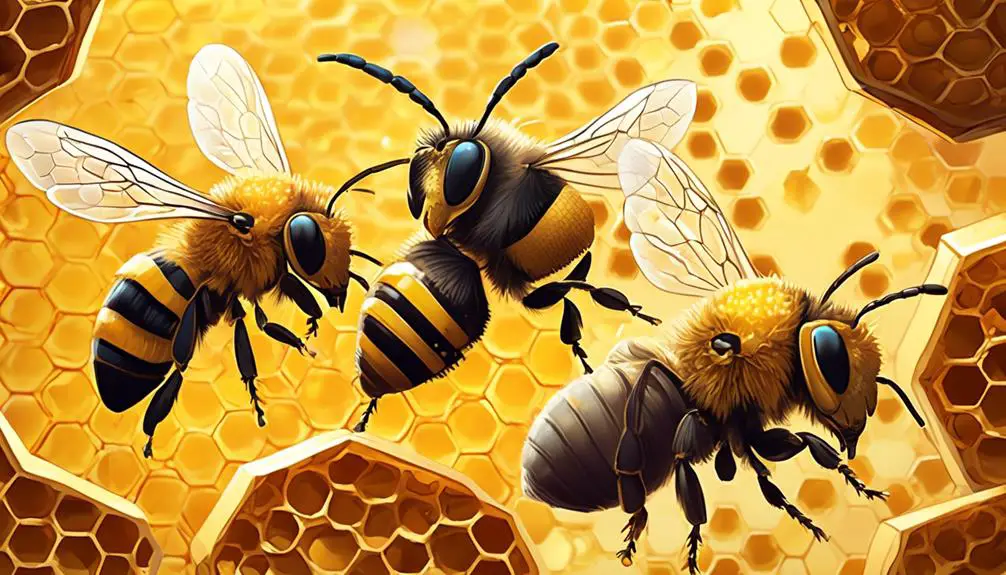
While observing mason bees, you'll notice that they exhibit a solitary behavior, unlike many other bee species, and their intricate nesting habits offer a fascinating insight into their unique life cycle. Every female is fertile and makes her own nest, typically in hollow reeds or holes in wood, often left by other insects.
You'd be intrigued to know that mason bees are non-aggressive. They won't sting unless they're trapped or squeezed, making them safer around children and pets. This is a direct result of their solitary lifestyle; they simply have less to defend than social bees.
Another observable behavior is their incredible industriousness. Mason bees are known to be prolific pollinators; a few of them can do the work of several hundred honeybees. This efficiency comes from their 'messy' pollen gathering, which results in a higher number of flowers visited and subsequently, more pollinated plants.
Lastly, your observation would reveal their adaptability. Mason bees are native to many regions and can thrive in diverse climates. Understanding these behaviors not only helps in their conservation but also highlights their potential as effective pollinators in sustainable agriculture.
The Wasp: A Brief Overview
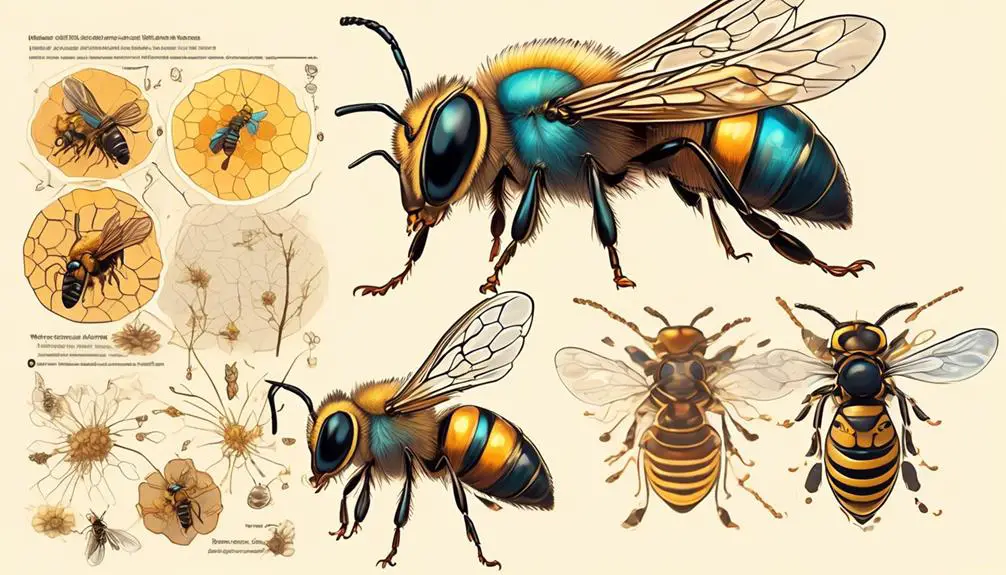
Moving on from bees, let's delve into the intriguing world of wasps, a diverse group of insects known for their distinctive appearance, complex social structures, and pivotal role in ecosystems. You'll find that wasps are more than just the pests they're often made out to be.
Belonging to the order Hymenoptera and the suborder Apocrita, wasps are closely related to ants and bees. These insects come in a variety of sizes and colors, with the common characteristics being a slender waist and elongated abdomen. They're also equipped with a stinger for hunting and defense.
The social structure of wasps is fascinating. Many species live in colonies, with a queen ruling the roost. Each wasp plays a vital role, from hunting and feeding the young to expanding the nest. It's a system that's both hierarchical and cooperative.
Wasps are essential for the environment, acting as pollinators and controlling pest populations. They're known to prey on insects that harm crops, keeping the balance in check.
However, their aggressive nature when threatened, coupled with a painful sting, often overshadows these beneficial aspects. Remember, understanding their behavior is key to coexisting peacefully.
Interaction Between Mason Bees and Wasps
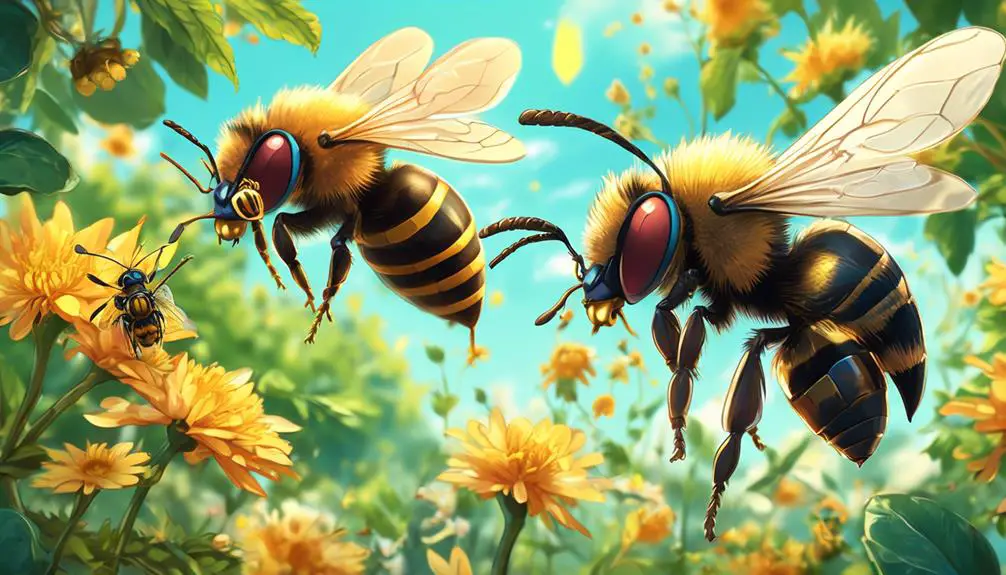
Having explored the intriguing world of wasps, let's now examine the interaction between these complex creatures and mason bees, a fascinating dynamic that showcases nature's delicate balance.
It's crucial to understand that mason bees and wasps aren't natural enemies, but rather, they occupy different ecological niches.
Mason bees, known for their solitary nature and non-aggressive behavior, are essential pollinators. They generally avoid confrontation and aren't equipped with a robust defense mechanism against predators like wasps. However, their nesting habits can deter wasps. Mason bees use closed cavities, often sealing their nests with mud or other materials, which can deter wasp intrusion.
On the other hand, wasps are carnivores, often preying on other insects for sustenance, while also serving as pollinators. Despite their predatory nature, they don't typically target mason bees, preferring easier targets like caterpillars or spiders.
Effect of Mason Bees on Wasp Populations
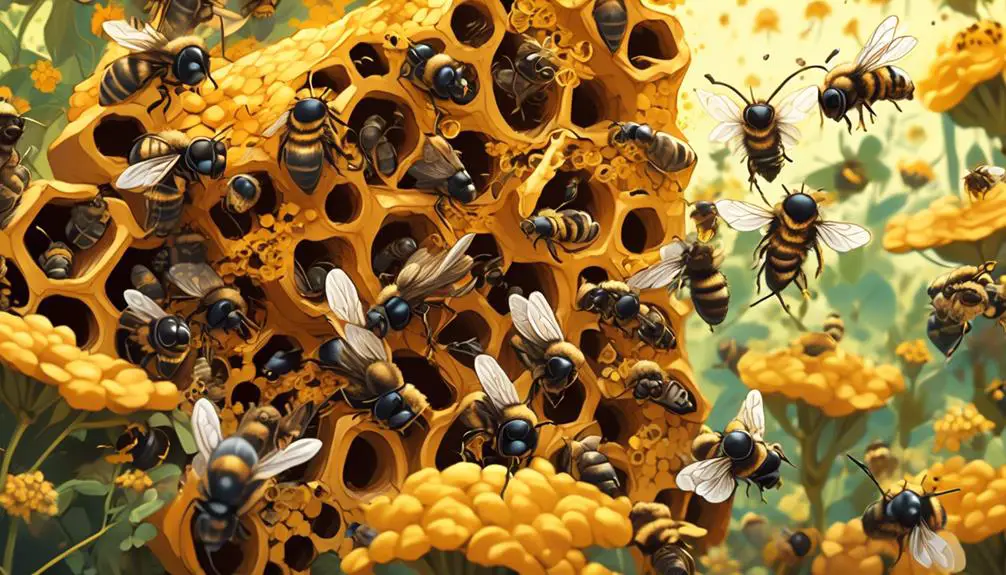
In examining the effect of mason bees on wasp populations, one mightn't expect a significant impact due to the bees' non-confrontational nature; however, subtle ecological interactions suggest otherwise.
It's crucial to understand that mason bees, unlike honeybees or bumblebees, don't produce honey or wax, two substances that often attract predatory wasps. This lack of attractive consumables can indirectly reduce local wasp populations by providing fewer feeding opportunities.
Moreover, mason bees, being solitary creatures, don't live in large colonies. This characteristic may lower the chance of wasp predation, as wasps often target larger bee colonies for their plentiful resources and potential nesting sites.
Lastly, consider the role of mason bees as pollinators. They can outcompete wasps for floral resources, thereby subtly restricting wasp population growth. Mason bees are highly efficient pollinators, often visiting more flowers per unit of time than wasps. This competition for resources can create a hostile environment for wasps, indirectly keeping their numbers in check.
Practical Tips for Managing Wasps
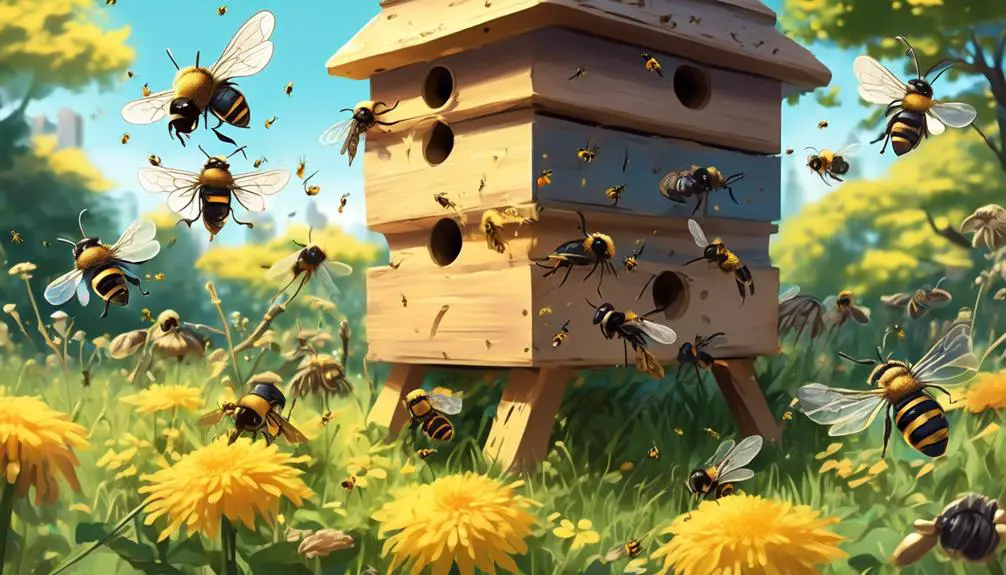
To effectively manage wasp populations in your area, it's essential to understand their behavior, life cycle, and the environmental factors that attract them. Wasps are attracted to food sources such as sweet substances, proteins, and garbage. Therefore, you can minimize their presence by properly sealing food containers and maintaining clean outdoor spaces.
Wasps are also drawn to certain types of plants. Avoid planting sweet-smelling flowers or fruit-bearing trees near your home. Wasps prefer warm, dry, and quiet areas for nesting. Checking your property for potential nesting sites, such as hollow trees, roof eaves, or wall cavities, may help to prevent infestations.
You can use traps to catch and kill wasps. These traps typically contain a sweet liquid bait that attracts the wasps. However, be aware that these traps can also attract beneficial insects like bees. Therefore, use them sparingly and only when necessary.
Lastly, if a wasp nest is found, it's recommended to contact a pest control professional. Wasps can become aggressive when their nest is threatened, and their stings can be painful and potentially dangerous. So, it's better to leave the removal to experts.
Conclusion
So, do mason bees keep wasps away? Unfortunately, there's no concrete evidence to suggest this.
While they may occasionally interact, mason bees don't significantly impact wasp populations.
It's crucial to employ effective wasp management techniques.
Remember, understanding these creatures is key to coexisting with them, so keep researching and stay informed!

